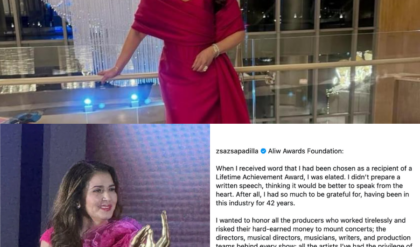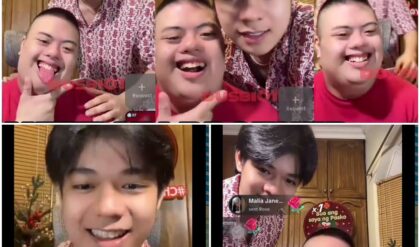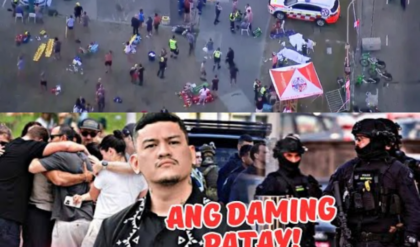The sun beat down on the cobbled streets of Tlacolula de Matamoros, Oaxaca, casting long shadows as evening approached. León, an imposing German shepherd with golden fur streaked with copper and amber eyes that gleamed with uncommon intelligence, walked wearily through narrow alleyways. His ribs protruded beneath his dull coat, a testament to weeks of hunger and abandonment. He had once been a guard dog on a coffee estate, but after his owners, overwhelmed by financial hardship, sold the land and vanished, León became just another stray in a world with little mercy.
As the sweltering August heat suddenly gave way to darkened skies, thunder rumbled over the nearby mountains and fat raindrops began to fall, creating rushing rivulets along the colonial streets. “Damn treacherous weather!” shouted a tlayuda vendor, rushing to pack up his stall.
Driven by instinct, León ran through the rain until he found shelter in the overgrown backyard of an old mansion with crumbling pink cantera stone walls. The once-manicured garden was now a tangled mess of wild jacarandas and tejocote trees whose roots cracked the terracotta tiles. The scent of jasmine mixed with the earthy smell of wet soil. As León shook the rain from his coat and began to explore, his nose alert to unfamiliar scents, his ears perked up at a faint sound—barely audible over the drumming rain: a trembling voice, like a flickering candle in the wind.
“Help, please… someone…”
León followed the voice to a small barred window at ground level, half-hidden by vines. Through the rusted iron bars, he saw an old man, his face etched with deep wrinkles like the canyons of the Sierra Mixteca. Despite his cloudy eyes—early signs of cataracts—a flicker of dignity lingered in his gaze. His white hair, fine as cotton, contrasted with sun-weathered skin.
“Holy Virgin! Are you real, or am I hallucinating?” whispered the man, extending a bony hand through the bars. “Come closer, I won’t hurt you.”
Normally wary of strangers, León felt an inexplicable pull toward the man. He stepped forward, allowing the trembling fingers to brush his snout.
“My name is José Morales,” the old man said softly. “They used to call me Don José, back when I mattered in this town.” He sighed, heavy with sorrow. “I’ve been locked in this basement for nearly a month. My daughter-in-law, Gabriela, tricked me.” His voice cracked as he recounted how Gabriela had him sign papers, claiming they were to protect his coffee lands.
“That treacherous woman took advantage of my forgetfulness,” he said with tear-filled eyes. He wore a faded striped pajama that swallowed his frail frame. Next to him, on a rusty metal cot, were half-eaten plates of food and glasses of murky water.
“She keeps me here while she sells off my lands. Lands my father and grandfather worked with their bare hands since they came from Spain. She tells everyone I’m in a retirement home in Puebla.” A single tear slid down his cheek. “No one’s looking for me. Everyone believes her.”
The rain intensified, but León didn’t move. His amber eyes locked onto Don José’s, as if absorbing every word.
“Will you stay a while, friend?” the old man pleaded. “It’s been so long since I spoke to someone—since I saw a living soul aside from that woman when she brings food.”
León settled by the window, resting his head near the bars. A faint smile lit up Don José’s weathered face.
“Thank you, dear God,” he whispered, gazing at the sky through the tiny window. “At least you sent me a dog, so I don’t have to die alone in this hole.”
The storm roared all night, but León remained. He had found something more vital than food or shelter: a purpose.
The Routine and the Revelation
At dawn, as the first rays of sunlight pierced through the bars, León moved. Don José slept fitfully, his breathing ragged, punctuated by soft whimpers. The dog stretched his stiff muscles, gave one last glance to the old man, and set out in search of food.
Tlacolula was awakening. Vendors set up stalls for the Sunday market, the air filled with the scent of café de olla and memelas, mingled with the damp earthiness left by the storm. León moved like a shadow through alleyways, dodging street sweepers and children on their way to school. His instincts led him to the back of a bakery where a young apprentice, Juan, was taking out the trash.
“Whoa, big dog!” the boy exclaimed, noting León’s size. “Hold on, don’t go.” He returned with a handful of day-old bread rolls.
“Take these, buddy. Looks like you’ve had it rough.”
León devoured the bread, but to Juan’s surprise, he gently picked up an extra roll in his mouth.
“What? Got a family or something?” the boy laughed, watching the dog trot off with the roll.
By noon, León was back at the mansion with his haul: the bread roll, a barbacoa bone he’d scavenged near the market, and a dented can filled with water from a public fountain. Don José’s eyes lit up.
“Holy Virgin of Guadalupe!” he cried, his hands trembling as he took the offerings.
“You brought me food, boy.” Tears welled as he nibbled the bread with the few teeth he had left.
“This is better than the slop she brings.”
As he ate, Don José’s memories flowed like a broken dam.
“You know, pup? I used to be someone in this town. My coffee estate, La Fe, produced the best organic coffee in the region. We won international awards.” His clouded eyes sparkled with pride.
“We employed over 50 families every harvest season. Many kids went to college thanks to our scholarships.”
León lay by the window, eyes fixed on the old man as if he understood every word.
“My wife Guadalupe, rest her soul, always said we should share our blessings. We never fired anyone, even during the Roya plague that nearly ruined us.”
His face darkened.
“My son Javier lives in the U.S. now. He married Gabriela five years ago—a woman twenty years younger. When he moved to Chicago for work, she stayed behind to ‘take care’ of me.”
He let out a bitter laugh.
“Care for me… Within two months she treated me like a burden.”
A noise upstairs startled them. Don José paled.
“She’s here. Go quickly—if she sees you—”
León vanished into the bushes just as the back door creaked open. From his hiding spot, he saw Gabriela: a woman in her forties, dyed-blonde hair, scarlet nails, dressed in designer clothes that clashed with the mansion’s decay. Her attractive face was hardened by cold calculation.
“Who were you talking to, you crazy old man?” she snapped.
“No one, daughter,” he replied with forced calm.
“You better not be telling lies,” she spat, tossing down a tray of cold beans and stale tortillas.
“If the neighbors hear you, they’ll start asking questions. And you know what happens when I get angry, don’t you?”
“Yes, Gabriela. I know,” he murmured.
“Tomorrow the notary comes to sign off the last northern plot. We’ve got a buyer.” Her tone was final.
“But that land holds the springs that water the entire estate,” he protested weakly.
A sharp slap rang out in the basement.
“Shut up. You’ll sign whatever I put in front of you, or you’ll go a week without food. Understood?”
“Yes, daughter,” he whispered, touching his reddened cheek.
Once she stormed out, León waited before returning. Don José sat on the cot, quietly sobbing.
“Sorry you had to see that, friend,” he said, wiping tears with his sleeve.
“She’s not family. She’s my jailer.”
León whimpered gently, nudging his snout through the bars to lick the man’s hand.
“Thanks for coming back,” Don José smiled sadly.
“You know? I’ll call you León. You’ve got the mane—and the heart—of a lion.”
Thus began a routine that shaped their days. Each dawn, León would scour the town for food, becoming an expert at finding reliable sources: Doña Rosa’s taco stand, Don Pancho’s barbacoa stall, and Juan’s bakery where fresh rolls awaited.
“There’s the mystery dog,” Juan would smile.
“Who are you feeding, huh? You always take more than you eat.”
An Unexpected Alliance
One morning, León’s scavenging took a crucial turn. Near the market, he saw an old woman leave Farmacia La Salud with a bag of medications. She stumbled, unknowingly dropping a small box. León sniffed it, recognizing the faint chemical scent Don José had described—pills for his heart condition. Carefully, León carried the box back to the mansion along with the usual food.
ChatGPT said:
The Plan and the Evidence
María Elena’s small veterinary clinic, its turquoise walls gleaming against the cobbled street, became the center of her secret mission. Amid colorful posters promoting animal care, she scribbled plans in a worn notebook. “I need to document everything,” she murmured, searching online for tools. After hours of browsing, she found it: a waterproof mini‑camera with long battery life. That night, after closing the clinic, she returned to the mansion with León by her side, the darkness hiding their movements. She installed the camera among vines beside the basement window. “This will record how Gabriela treats you,” she whispered to Don José, who watched with a mixture of hope and fear. “We need solid proof before going to the authorities.” “I’m so scared, my dear girl,” he confessed weakly. “Gabriela has powerful friends. Police Chief Ramírez is her compadre and Notary Mendoza is her brother‑in‑law.” María Elena shivered. The corruption was deep in small towns like Tlacolula—but her determination remained firm. “My father says the truth is like water: it takes long paths but always finds its way.”
Over the next weeks, María Elena maintained a meticulous routine, changing the camera’s batteries every three days and downloading the footage. The videos were heartbreaking: Gabriela serving Don José scant, spoiled food, yelling at him, threatening and sometimes pushing him when he resisted signing documents.
One afternoon, while watching the recordings, a middle‑aged woman walked into the clinic with a cat. “Dr. Guzmán, they say you’re the best veterinarian in town,” she said, placing a carrier on the exam table. “I do what I can,” replied María Elena, hoping for a name. “Teresa López,” the woman offered, petting her cat. “I worked as housekeeper for the Ortiz family… but I worked for Don José Morales for nearly 20 years until…” She paused, her face darkening. “Until your daughter‑in‑law fired me, saying Don José didn’t need me because he was in a clinic in Puebla.” Teresa’s voice trembled. “Something’s not right, doctora. He always said he’d never leave his home, that he wanted to die among his coffee fields.” María Elena studied Teresa’s sincere face and decided to trust her. “Mrs. Teresa, what I’m about to share stays between us.” She lowered her voice. “Don José never left Tlacolula. He’s locked in his own basement.” Teresa’s eyes widened. “Holy Mother of God! I knew it.” Her hands shook. “That woman was always after his property documents, pressuring him to sign things.” “I need your help,” said María Elena. “You know the house better than anyone.” “Count on me, doctora—he was like a father to me.”
With Teresa’s addition, the plan solidified. She provided crucial details: house blueprints, Gabriela’s routines, and the location of a safe hidden behind a portrait of Don José’s late wife, Guadalupe, in the library. “Only he knows the combination,” Teresa explained. Meanwhile, María Elena investigated Don José’s past and discovered his deep impact on the community. At the municipal library, she found articles praising La Fe for employing generations, funding scholarships, and resisting corporate offers. “He wasn’t just a landowner,” the librarian, a man in his sixties, told her, “he was the pillar of our economy. When Hurricane Bárbara wiped out half the 2013 harvest, he didn’t fire anyone. He hired more to rebuild.”
One afternoon, as María Elena and León approached the mansion, the dog froze, growling at a black car parked in the distance. “What’s wrong, buddy?” María Elena whispered. León barked loudly, pulling at her sleeve to retreat. Gabriela emerged carrying a briefcase alongside a formally dressed man. “So the deal is closed,” the man said as they shook hands. “Agromex will pay the deposit next week once the papers are finalized.” “Perfect, Notary Mendoza,” Gabriela replied with a calculating smile. “My father‑in‑law will be delighted to sign the rest tomorrow.” “Your father‑in‑law? I thought you had full notarial powers in most matters.” “Yes, but the main land needs his signature,” she lowered her voice, unaware of María Elena and León hiding behind thick prickly pear foliage. “The old man still serves a purpose.” When the car drove off, María Elena processed the revelation. “Agromex,” she muttered. “They’ve been buying coffee lands for intensive avocado cultivation.” That night, she shared the conversation with Don José. “God help us!” he said, hands to his face. “Those lands have been organic for three generations. If Agromex uses their chemicals, they’ll ruin the springs that feed the valley.”
One evening, María Elena approached the bars. “Don José,” she said, “I need the combination to your safe. Teresa mentioned it.” He looked surprised. “Is my Teresa with you?” Seeing her nod, he closed his eyes, searching his memory. “It’s December 7, 1953—the day I met my Guadalupe.” Tears ran down his wrinkled cheeks. León, sensing his pain, nudged his muzzle through the bars. “Relax, Don José,” whispered María Elena, her resolve hardening. “We will get what’s yours, I promise.”
As they retraced their steps toward town, León walked purposefully at María Elena’s side. She felt the responsibility weight on her shoulders—but also an unbreakable conviction. This wasn’t just Don José’s fight; it was a battle for justice, respect for elders, and a legacy belonging to the entire community. “Tomorrow, we begin phase two,” she told León, and he looked back with eyes that seemed to understand the gravity of their shared mission.
The Escape and the Confrontation
The next morning, a thick fog covered Tlacolula, obscuring its colorful facades. María Elena, dressed in dark clothes with her hair under a cap, met Teresa at a corner at 6 a.m., while Gabriela was still asleep. “Good morning, doctora,” Teresa whispered, her determined face belying her fear. “I brought the service keys I kept after she fired me. Gabriela never bothered to change the locks.” León, quiet until then, approached Teresa, sniffed her hands, then licked them softly. “I missed you too, boy,” she murmured, petting his head. “You were always the best guardian of the estate.”
The trio moved stealthily through back alleys toward the mansion’s rear. Teresa led them to a service entrance hidden by vines. “This door opens into the kitchen,” she explained, inserting a small brass key. From there, they could reach the library without using the main stairs. The kitchen was dark, only thin rays of dawn shining through wooden shutters. León advanced cautiously, sniffing familiar scents. Teresa guided them down a narrow corridor with old Talavera tiles until they reached a carved wooden door. “The library,” she whispered. Inside, María Elena marveled at its grandeur: mahogany shelves filled with old books, a centuries‑old carved desk, and windows overlooking once‑immaculate gardens. “Doña Guadalupe’s portrait is there,” Teresa pointed to a side wall where a serene, enigmatic woman’s painting hung. María Elena approached reverently, gently lifted it. Behind it, as promised, was a small wall‑safe. “December 7, 1953,” she murmured, turning the dial. With a soft click the door opened, revealing yellowed folders, a velvet pouch, and a wax‑sealed envelope. “Quick!” Teresa urged. “Gabriela wakes around 7.”
María Elena packed everything into her backpack just as León growled, ears pricked and body tensed. “Someone’s coming,” warned María Elena. Teresa led them into a hidden passage behind a bookshelf. “Don José built this escape route during the Revolution,” she explained as they sealed the secret door. Just in time. Through a narrow crack they saw Gabriela enter the library with an unfamiliar severe-looking man. “I heard noises, Carlos,” Gabriela said, agitated. “Someone’s been snooping.” “Probably rats,” the man sneered. “This mansion’s full of them. You should have it torn down once we sell everything.” “You know I can’t until I have all the old man’s signatures,” she rubbed her temples. Carlos grabbed her arm roughly. “No excuses, sister. I promised Agromex the entire land by month’s end. Delays are costing us millions.” María Elena and Teresa exchanged startled looks. Carlos Mendoza—Gabriela’s brother—was the notary. “Now I see how they forged so many documents,” Teresa whispered. Gabriela’s voice trembled. “I need more time. The doctor said we can’t keep drugging him or he’ll die.” “And a corpse raises too many questions!” Carlos spat. “Then find another way. If necessary, move him to the Sierra Mixteca ranch—that place is isolated, no one will hear from him there.” When the siblings left, the hidden trio exhaled in relief. “We have to get Don José out tonight,” said María Elena, voice trembling. “We can’t wait.” “How?” asked Teresa. “The basement door is locked and Gabriela holds the key.” León, as if sensing a plan, stepped forward. “I think our friend here has an idea,” said María Elena. The dog led them deeper down the tunnel, connecting with old estate storage areas. After navigating damp, narrow corridors, they reached a heavy wooden door. “My God!” gasped Teresa. “The tool shed connects to the basement—I’d forgotten.” Together they forced open the creaky door. In the dim light through a barred window, Don José sat on his cot, face marked by despair. “Who’s there?” he called weakly. Teresa ran to his side, tears in her eyes. “We’re here to get you out.” His face lit with joy and fear. “Teresa! María Elena! León!” he reached out trembling hands. “But it’s dangerous—if Gabriela finds you…” “There’s no time to explain,” interrupted María Elena. “We overheard her and her brother plan to move you to the Sierra Mixteca tonight, where no one will find you.” Don José’s face went pale. “The Sierra Mixteca ranch… If they take me there, I will never return.” “That’s why we leave now,” insisted María Elena, helping him up. His legs, weakened from months of confinement, faltered—but León pressed against him, offering support. Don José smiled gratefully, leaning on the dog. “My faithful León, I always knew you were special.” Teresa dressed him in clean clothes she had brought. “You’re very weak,” she fretted. “You need a doctor.” “First to my clinic,” decided María Elena. “I have a doctor friend who can discreetly check him.”
The return through the tunnel was arduous; Don José moaned quietly from pain. His determination, however, shone one again. “My father built these tunnels during the Revolution,” he gasped. “I never thought they’d save my life.” Emerging among abandoned coffee fields behind the property, midday sun blinded Don José—he hadn’t seen daylight in months. “The world looks different,” he whispered as tears of joy streamed down his face. “I thought I’d die in that hole.” León barked softly, licking his hand. “Thank you, friend,” he whispered, embracing the dog. “You found me when everyone forgot me.”
As they slipped down back roads toward María Elena’s clinic, no one noticed a figure watching from a distance with binoculars. Dr. Antonio Vargas, María Elena’s rival and an ally of Gabriela, grabbed his phone. “Gabriela, we have a problem. The old man escaped—and you won’t believe who is helping him.”
María Elena’s clinic, smelling of antiseptic and brightly painted, became a temporary sanctuary. Teresa closed the blinds as María Elena settled Don José in a recovery room meant for animals. “It’s not a five‑star hotel, but we’re safe for now,” María Elena joked, preparing chamomile tea. “It’s a palace compared to that basement,” Don José replied, hands trembling as he held the warm cup. León stood guard by the door, ears pricked to every sound.
María Elena sat before Don José, taking out the contents from the safe. “We checked the documents—these are the original land titles, right?” he nodded. “They’re over 80 years old—my father kept them as treasure, and so did I.” His eyes gleamed with quiet pride. “Gabriela never knew they existed. The papers she has are copies, missing my father’s special clauses.” “Special clauses?” asked María Elena, applying a cool cloth to his forehead. “My father stipulated that the lands of La Fe cannot be sold to agro‑industrial corporations—only to families devoted to traditional, organic farming.” A satisfied smile crossed his face. “That means all Gabriela’s negotiations with Agromex are illegal.” “Exactly,” Don José confirmed, “but we need an honest notary—and Carlos Mendoza controls the town’s notarial offices…”
A knock came at the back door. León stiffened. María Elena approached quietly. “Who is it?” “Juan Torres—the community clinic doctor,” came a calm voice. “I got your message, María Elena.” Relieved, she opened the door. Juan froze at the sight of Don José. “My God—Don José Morales! Gabriela said you were in Puebla with advanced dementia.” “As you see, I’m far from Puebla—and still lucid, though battered,” Don José said with dignity. Juan’s expression darkened. “Dehydration, moderate malnutrition, possible anemia, and bruises of varying ages. Someone’s been hitting you.” “Gabriela is persuasive when I refuse to sign,” Don José said bitterly. “This is elder abuse, pure and simple,” Juan said with indignation. “We need to document these injuries—they are key evidence.”
León lifted his head, ears rigid, growling at the window. “Someone’s outside,” María Elena whispered. Teresa peeked through the blinds. “It’s Antonio Vargas on the phone, pointing this way.” “Damn!” María Elena cursed. “Antonio has always been jealous of my clinic and close to Gabriela. He must have followed us.” “We don’t have much time,” Juan warned, putting away his tools. “If Antonio called Gabriela, he likely alerted her brother and Ramírez. We need to leave Tlacolula—at least until we can present these documents to the state authorities, out of Mendoza’s influence.” “My compadre Pedro has a dairy delivery truck,” Teresa suggested. “He goes to Huajuapan de León every morning.” “Perfect!” María Elena agreed. “Juan, can you stay and act casual if they come to question? Say you’re treating a sick dog.” “Count on me,” he promised, “but hurry—they may show up with a fake search warrant.”
Teresa stepped out to find Pedro while María Elena helped Don José stand. León remained close, ever vigilant. “Ready for one last trip, amigo?” Don José asked the dog, who softly barked in agreement.
Twenty minutes later, Pedro’s battered refrigerated truck parked in the clinic’s alley. He helped Don José aboard amid crates of cheese and yogurt. “It’s not comfy, but no one will look here,” Pedro said, wrapping him in blankets. “I’ve slept in a damp basement for months, son,” Don José replied with a smile, “this is the Fiesta Americana.” Just then, three patrol cars screeched into view. Gabriela stepped out followed by Ramírez and Carlos. “Go now!” Teresa urged. The truck lurched forward just as Juan calmly pointed at a sleeping dog in a cage. “Your friend is quite the actor,” noted Pedro, taking a side road to avoid the town. “Juan handles difficult situations at the clinic,” María Elena added. “He knows how to stay calm under pressure.”
Heading toward Huajuapan de León, Don José checked the documents to ensure they were safe. María Elena pointed to the velvet pouch he held tightly. “What’s inside?” He opened it to reveal a gold sapphire engagement ring—Guadalupe’s ring. “I kept it for Clara, my daughter.” “You have a daughter?” María Elena asked, stunned. “Yes—Clara lives in Japan. She’s been married to a businessman there for 15 years.” Tears fell. “Gabriela made me believe Clara disinherited me, showed me fake letters full of resentment.” “That woman is a demon,” muttered Teresa. “Have you contacted Clara directly?” María Elena asked. “Gabriela controlled everything—my phone, mail, computer,” Don José sighed. “When I tried to send a message secretly, she caught me. That’s when she locked me in the basement.” León curled beside him, licking his hand. “You know, María Elena,” Don José said softly, “when this dog appeared at my window, I thought I was hallucinating. I’d been alone for days—sure I’d die forgotten. León gave me hope when I’d lost everything.”
Pedro’s truck rattled along rural roads, avoiding major routes. Through a small window they saw agave fields under the setting sun. “What’s the plan in Huajuapan de León?” Pedro asked, checking his mirror. “Contact the State Prosecutor’s Office,” María Elena said. “My cousin Luis works there as an assistant to the district attorney; he can help file abuse charges using our evidence.” Then Don José spoke, voice resolute: “I will call my daughter. It’s time she knew the truth.”
Unbeknownst to them, Antonio had alerted his contacts at road checkpoints, describing the truck and its passengers. The struggle for justice was far from over, and danger lurked at every turn. As dusk painted the sky with violet streaks, Pedro braked hard. “There’s a police checkpoint ahead,” he whispered. “That’s not usual on this road.” María Elena peeked through the cabin window at officers in bulletproof vests inspecting vehicles. “Antonio must have tipped them off,” fear tightened María Elena’s chest. “But they don’t know which truck we’re in,” Pedro said, trying to reassure her—though his voice wavered.
A policeman tapped on the cab. “Good evening—where to?” he asked in a monotone voice. Pedro responded calmly, showing delivery papers. Inside the back, María Elena, Teresa, and Don José stayed still among the yogurt crates. León growled softly, body tense. “Open the rear, please,” ordered the officer.
María Elena’s heart pounded. This was it. Don José looked at her with determination. “Faith, my girl,” he whispered. Pedro sighed and opened the truck doors. Flashlights flooded the interior, revealing dairy crates. The officers began inspecting, metal echoing in the confined space. León unexpectedly leapt out and barked furiously at the officers, grabbing their attention. “Dog!” one shouted, attempting to shoo it away. While the policemen were distracted by León, María Elena moved swiftly, guiding Don José and Teresa out of the truck through the opposite side into the darkness beyond the fields.
León continued barking, buying time as they slipped away through the brush. The officers, frustrated, tried to corral the dog—but León was quick and familiar with the terrain. Finally Pedro, play‑acting annoyance, captured him. “Enough, damn dog! Back in your cage!” The officers, finding nothing but a “troublesome” dog and crates of cheese, let the truck go.
A few kilometers away, reunited and safe, María Elena hugged León. “You’re the best, friend,” she whispered. Arriving in Huajuapan de León, they contacted Luis, María Elena’s cousin. Shocked by the story and the evidence—Gabriela’s recordings, Teresa’s testimony, Juan’s medical report, and the original land titles—he acted quickly. Within days, the State Prosecutor’s Office issued arrest warrants for Gabriela, Carlos Mendoza, and Police Chief Ramírez. The news spread like wildfire through Tlacolula. The community—once deceived by Gabriela—rallied behind Don José. La Fe, under its legal clauses, was protected from Agromex and its harmful chemicals.
With Don José now recovered, supported by María Elena and Teresa, he finally contacted his daughter Clara. Between tears of joy and apologies, they reunited. Clara, moved by the story and León’s heroism, decided to return to Tlacolula to help her father restore La Fe and safeguard his legacy.
León—the stray dog—became a legend in Tlacolula. No longer just a guardian dog on a plantation, he became the protector of justice and hope. He lived with Don José in his own home—not a basement—receiving love and gratitude from the whole community. María Elena continued running her clinic, now more respected than ever, and “Panadero Juan” from the bakery always reserved an extra bolillo for her “mystery dog.”
The story of Don José, María Elena, Teresa, and León serves as a reminder that—even in the darkest corners—loyalty, truth, and courage can prevail over corruption and cruelty, lighting the way so that a community’s soul—and an old man’s heart—can shine once more.





